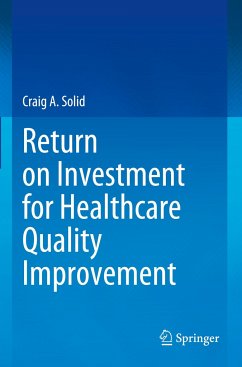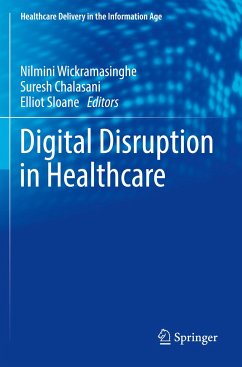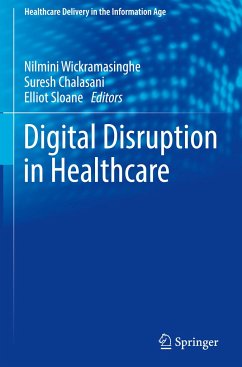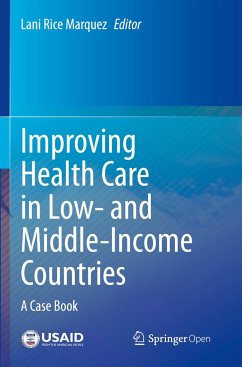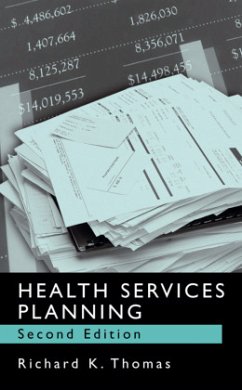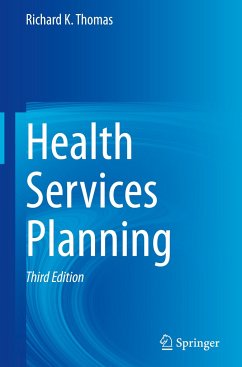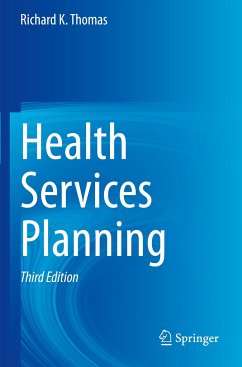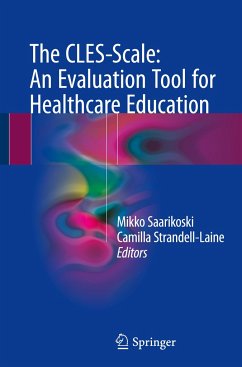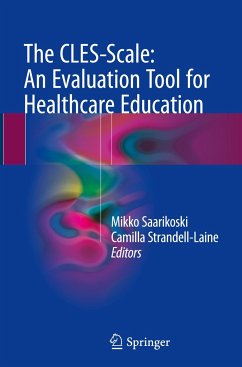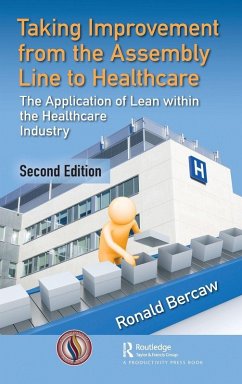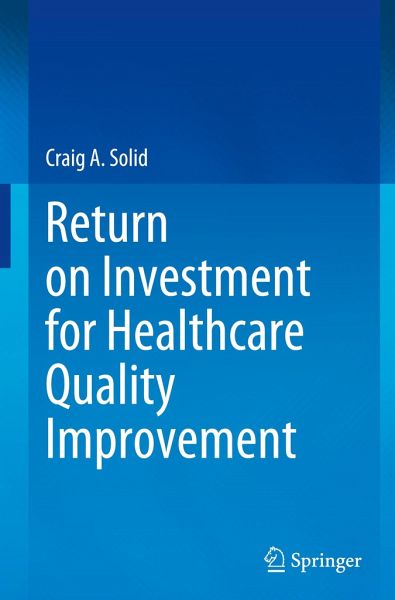
Return on Investment for Healthcare Quality Improvement
Versandkostenfrei!
Versandfertig in 6-10 Tagen
68,99 €
inkl. MwSt.
Weitere Ausgaben:

PAYBACK Punkte
34 °P sammeln!
This book offers a comprehensive overview of performing return-on-investment (ROI) analyses for healthcare quality improvement (QI). In the United States, healthcare policy regarding physician and facility payment/reimbursement is steadily trending towards the use of "value-based" systems and away from the traditional "fee-for-service" (FFS) payment mechanisms. Healthcare professionals and organizations who have previously focused on quality metrics are now finding themselves burdened with having to define and assess value metrics, without much guidance or assistance. This volume aims to be a ...
This book offers a comprehensive overview of performing return-on-investment (ROI) analyses for healthcare quality improvement (QI). In the United States, healthcare policy regarding physician and facility payment/reimbursement is steadily trending towards the use of "value-based" systems and away from the traditional "fee-for-service" (FFS) payment mechanisms. Healthcare professionals and organizations who have previously focused on quality metrics are now finding themselves burdened with having to define and assess value metrics, without much guidance or assistance. This volume aims to be a guide and a reference for healthcare professionals tasked with estimating and establishing ROI for QI.
Chapters describe the general framework for how to perform QI; establish standard definitions of important terms, concepts, and calculations; and provide specific instructions for how to complete each step of an ROI analysis. These include: selecting a QI initiativeand identifying the associated metrics, establishing measurable, monetizable, and attributable costs and benefits, determining the appropriate scope and perspective, calculating ROI and related metrics (payback period, benefit-to-cost ratio, etc.), comparing with established benchmarks or previously published results, and interpreting the results for the intended audience. In addition, chapters offer examples of real studies (or hypothetical studies of real situations), as well as templates for several of the necessary activities that readers can leverage for their own use.
Return on Investment for Healthcare Quality Improvement is a must-have resource for healthcare providers, administrators, and other professionals who work in healthcare organizations, hospitals and other healthcare settings, health systems, and residency programs seeking to obtain outside funding, as well as policy makers and administrators of federal programs.
Chapters describe the general framework for how to perform QI; establish standard definitions of important terms, concepts, and calculations; and provide specific instructions for how to complete each step of an ROI analysis. These include: selecting a QI initiativeand identifying the associated metrics, establishing measurable, monetizable, and attributable costs and benefits, determining the appropriate scope and perspective, calculating ROI and related metrics (payback period, benefit-to-cost ratio, etc.), comparing with established benchmarks or previously published results, and interpreting the results for the intended audience. In addition, chapters offer examples of real studies (or hypothetical studies of real situations), as well as templates for several of the necessary activities that readers can leverage for their own use.
Return on Investment for Healthcare Quality Improvement is a must-have resource for healthcare providers, administrators, and other professionals who work in healthcare organizations, hospitals and other healthcare settings, health systems, and residency programs seeking to obtain outside funding, as well as policy makers and administrators of federal programs.





